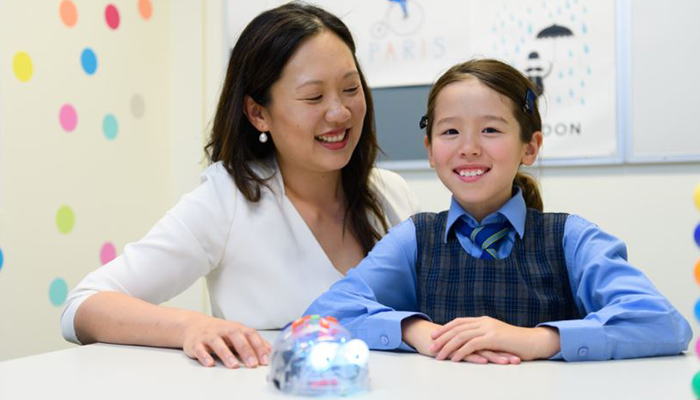The number of people studying higher mathematics in Australia is in decline. This is troubling for a number of reasons, not only the obvious one that Australia’s future itself is precariously contingent on producing subsequent generations of maths-literate scientists. Progress in environmental issues, health, energy, technology, and a lot of everything else, all require the pipeline of scientists, mathematicians, and statisticians to remain open, and the high-quality flow uninterrupted.
For those who do not see themselves as having a penchant for the STEM disciplines, however, continuing their mathematics education to the highest level possible is still very important.
While this suggestion may seem … odd, there is (peer-reviewed) evidence that shows those who studied extra mathematics at high school tended to gain an advantage in their other subjects (that one would not traditionally associate with mathematics) over those who did not.
Counterintuitive though this may seem, it is the underlying skills that one gains when engaging with mathematics that is perhaps responsible.
Mathematics also teaches you skills in communication, taking a potentially complicated idea and distilling it down to the most important parts.
Mathematics and statistics teach you skills in critical and analytical thinking and give you the ability to confront new and challenging concepts, and process new information. They instil you with a natural creativity, so you are able to tackle any problem in new and creative ways.
You learn how to problem solve; how to break problems down to their simplest form and solve them using the methods and techniques that you have available to you. When learning mathematics and statistics, you learn how to research when you engage with the specific process of posing new questions, understanding real-world processes, and making new discoveries.

Numbers-plus: Mathematics instil you with a natural creativity, so you are able to tackle any problem in new and creative ways, says Dr Calabretto.
Surprisingly, mathematics also teaches you skills in communication, taking a potentially complicated idea and distilling it down to the most important parts in order to effectively communicate these new ideas to someone else. Mathematics is, of course, a language in its own right.
'Wee bit of an image problem'
Critical and analytical thinking, creativity, problem solving, the ability to research, and communication skills are important, and one might say crucial, in any job. But jobs aside, these are skills that set people up to be the most successful versions of themselves in life.
However, mathematics has a wee bit of an image problem these days. People enjoy regaling me with tales of how they hate maths, or how they are terrible at it. In order to increase the number of Australians, especially young women, in continuing their mathematics education, we very much need to change people’s perception that mathematics is only for the intellectually elite, or that it is irrelevant or dull.
The more people who understand the pervasiveness of mathematics and statistics in their everyday lives, the better off they will be, and the better off Australia will be as a whole.

Dr Sophie Calabretto (pictured) is a Senior Lecturer in the Department of Mathematics and Statistics at Macquarie University. She is a finalist for the 2020 Eureka Prize for Promoting Understanding of Science.



